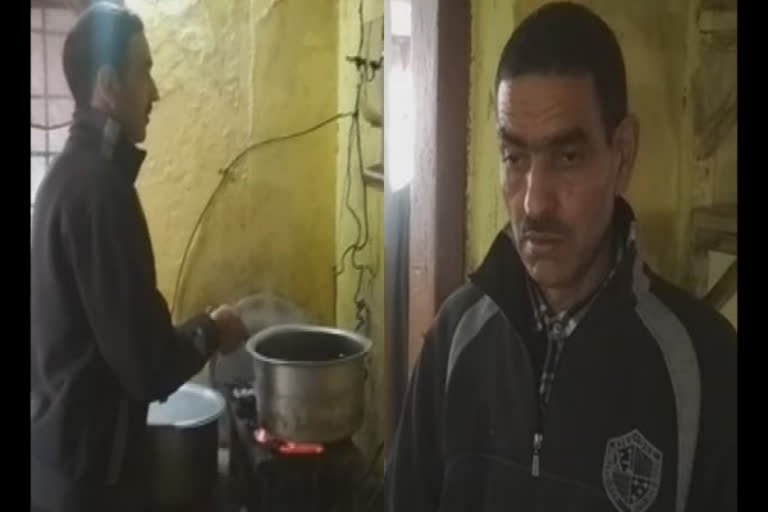Srinagar: Unlike other specially-abled persons in Kashmir, Muhammad Shafi Lone - a visually impaired person, stands out as a motivation.
Lone, 42, a resident of Khonmoh area in Srinagar outskirts, lost his eyesight when he was in fourth grade. But the impairment didn't stop him to live a dignified life.
Lone says he started selling tea at a local shop near Industrial Estate in Khonmoh to earn his livelihood.
"I vowed to stand by myself and not become a burden for my family or for the society," he says.
Initially, Lone struggled to run the shop as his lost eyesight became a hurdle for him to tend to tea-lovers who trickled down to his shop.
Lone says that the will to stand out and live his life on his own has motivated him to carry on.
Also read: Using peacekeeping funds for other purposes 'bad faith': India
"I didn't want to be dependent on my family or government aid to live my life. I carried on and with gaining experience day after day, my efforts to run the tea shop bore fruit. Today, I am living honorably with my family and my children went to school," he says.
Jammu and Kashmir has, according to the census report of 2011, around 3.60 lakh people, nearly three per cent of the state’s population, which have some form of disability.
Among these, 2.8 lakh are visually impaired, 0.38 lakh are physically challenged, 0.17 lakh have speech disability and 0.13 lakh have hearing impairment.
Most of these specially-abled persons are dependent on government aid, which is too meagre to sustain them.
These specially-abled persons are looked down upon by society and a lot of them are being called 'burden' on their families.
With no avenues of work provided by the government, these specially-abled mostly sit idle at their homes and even some are gullibly used for begging.
Also read: UN chief visits Kartarpur Sahib in Pakistan
However, Lone serves an example for them.
"Persons with disabilities should not lose hope. My message for them is to stand out for yourself and make efforts to earn so that we are not burdened on our families. We should show them that we are specially-abled and not destined to be dependent," he says.



